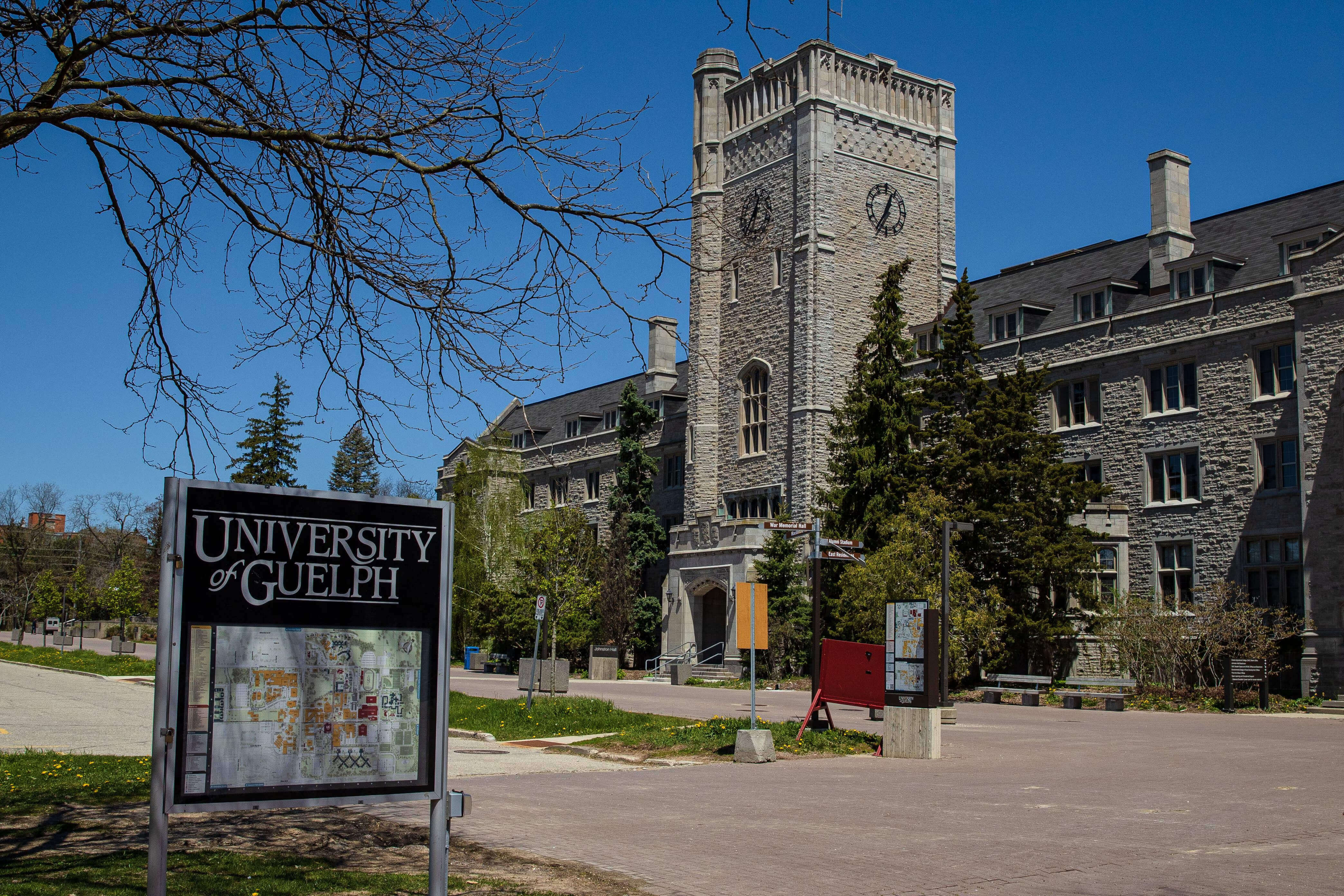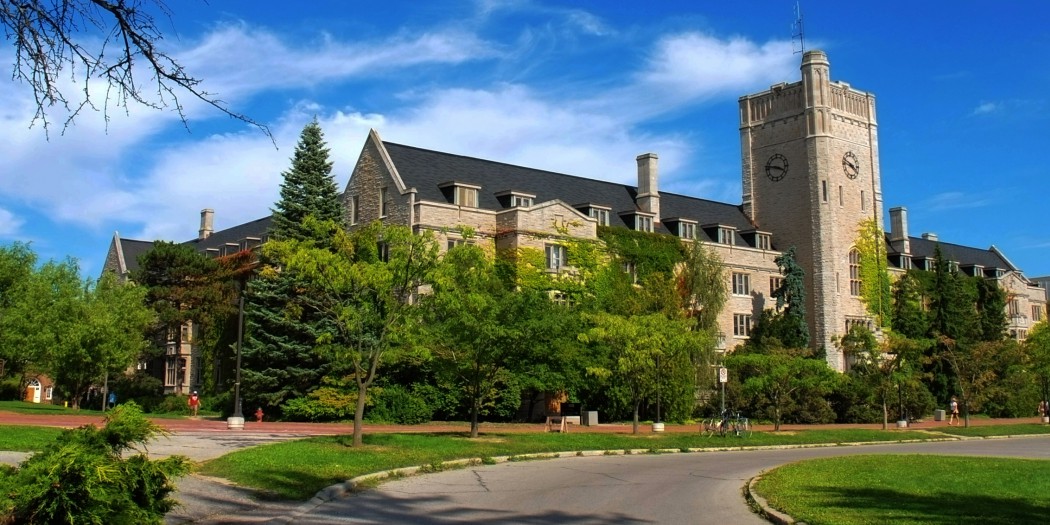Except where specified, courses may be offered in any semester subject to student demand and the availability of an instructor.
All courses are given an eight character code with the sixth having the following significance: 1 (inorganic), 2 (analytical), 3 (biochemistry), 4 (theoretical), 5 (physical), 6 (organic), and 7 (polymer).
CHEM*7100 Selected Topics in Inorganic Chemistry Unspecified [0.50]
Discussion of specialized topics related to the research interests of members of the Centre. Special topics could include, for example: bioinorganic chemistry; inorganic reaction mechanisms; synthetic methods in inorganic and organometallic chemistry; homogeneous and heterogeneous catalysis; chemistry of polynuclear compounds.
Department(s): Department of Chemistry
Location(s): Guelph, Waterloo Campus
CHEM*7120 X-ray Crystallography Unspecified [0.50]
Introduction: crystals, basic concepts; space groups: the reciprocal lattice; x-ray diffraction; the phase problem; structure factors; electron density; small molecule structure solution, structure refinement, structure results, journals and databases, paper writing.
Department(s): Department of Chemistry
Location(s): Guelph
CHEM*7130 Chemistry of Inorganic Solid State Materials Unspecified [0.50]
Introduction to solid state chemistry, common crystal structures, principles of solid state synthesis, theory and experimental methods for characterizing solids, including thermal analysis techniques, powder x-ray and neutron diffraction methods; special topics to include one or more of the optical, electronic, magnetic, or conductive properties of inorganic materials. A one semester-long undergraduate course (at least third-year level) in inorganic chemistry, preferably with content in structural and/or solid state must be taken prior to registering for this course.
Department(s): Department of Chemistry
Location(s): Guelph, Waterloo Campus
CHEM*7150 Structure and Bonding in Inorganic Chemistry Unspecified [0.50]
Free electron, Hueckel and extended Hueckel methods for molecules and clusters. Perturbation theory. Applications of group theory in inorganic chemistry; Jahn-Teller effects in molecules and solids. Energy bands in one, two and three dimensions. Three semester-long undergraduate courses in inorganic chemistry and one semester-long undergraduate course in quantum mechanics or group theory must be taken before registering for this course.
Department(s): Department of Chemistry
Location(s): Guelph
CHEM*7170 Advanced Transition Metal Chemistry Unspecified [0.50]
Magnetochemistry of transition metal compounds. Electronic spectra of complex ions including applications of molecular orbital and ligand field theories. Stabilization of unusual oxidation states and co-ordination numbers. Bonding, structure and reactivity of certain important classes of metal complexes, e.g., metal hybrides, metal-metal bonded species, biologically significant model systems such as macrocycles.
Department(s): Department of Chemistry
Location(s): Guelph
CHEM*7180 Advanced Organometallic Chemistry Unspecified [0.50]
Reactions, structure and bonding of organometallic compounds of transition and non-transition metals.
Department(s): Department of Chemistry
Location(s): Guelph
CHEM*7200 Selected Topics in Analytical Chemistry Unspecified [0.50]
Special topics could include, for example: trace analysis using modern instrumental and spectroscopic methods; advanced mass spectrometry (instrumentation and interpretation of spectra); analytical aspects of gas and liquid chromatography.
Department(s): Department of Chemistry
Location(s): Guelph, Waterloo Campus
CHEM*7240 Chemical Instrumentation Unspecified [0.50]
Instrumental components and optimum application; rudiments of design; electrical, spectral, migrational and other methods.
Department(s): Department of Chemistry
Location(s): Guelph, Waterloo Campus
CHEM*7260 Topics in Analytical Spectroscopy Unspecified [0.50]
Atomic emission and absorption spectroscopy; methods of excitation and detection; quantitative applications. Molecular electronic spectroscopy, UV, visible and Raman; instrumental characteristics; applications to quantitative determinations, speciation, measurements of equilibrium, etc. Sources and control of errors and interferences. Determination and description of colour.
Department(s): Department of Chemistry
Location(s): Guelph
CHEM*7270 Separations Unspecified [0.50]
Material to be covered is drawn from the following topics: diffusion; isolation of organic material from the matrix; chromatographic techniques - principles of chromatographic separation, gas (GLC, GSC), liquid (LLC, LSC, GPC, IEC), supercritical fluid (SFC) chromatographies; GC-MS, CG-FTIR; electrophoresis, flow field fractionation. An undergraduate level course in instrumental analysis should be taken prior to this course.
Department(s): Department of Chemistry
Location(s): Guelph
CHEM*7280 Electroanalytical Chemistry Unspecified [0.50]
A study of electroanalytical techniques and their role in modern analytical chemistry. The underlying principles are developed. Techniques include chronamperometry, chronocoulometry, polarography, voltammetry, chronopotentiometry, coulometric titrations, flow techniques, electrochemical sensors and chemically modified electrodes.
Department(s): Department of Chemistry
Location(s): Guelph
CHEM*7290 Surface Analysis Unspecified [0.50]
Department(s): Department of Chemistry
Location(s): Guelph
CHEM*7300 Proteins and Nucleic Acids Unspecified [0.50]
Determination of protein sequence and 3-dimensional structure, protein anatomy; prediction of protein structure; intermolecular interactions and protein-protein association; effects of mutation. Nucleic acid structure and anatomy; DNA and chromatin structure; RNA structure; snRNPs and ribozymes; protein-nucleic acid interactions.
Department(s): Department of Chemistry
Location(s): Guelph
CHEM*7310 Selected Topics in Biochemistry Unspecified [0.50]
Discussion of specialized topics related to the research interests of members of the Centre: for example, recent offerings have included peptide and protein chemistry, biochemical toxicology, medical aspects of biochemistry, glycolipids and glycoproteins, redox enzymes, biological applications of magnetic resonance, etc.
Department(s): Department of Chemistry
Location(s): Guelph
CHEM*7360 Regulation in Biological Systems Unspecified [0.50]
Mechanisms of regulation of metabolism - enzyme clusters; phosphorylation and protein kinases/phosphatases, repression and induction, protein turnover. Regulation of transcription, translation and mRNA processing. Cell cycle and control of cell division.
Department(s): Department of Chemistry
Location(s): Guelph
CHEM*7370 Enzymes Unspecified [0.50]
Mechanisms of rate enhancement. Enzyme kinetics - steady state; inhibitors; bisubstrate enzymes; fast reaction kinetics. Enzyme reaction mechanisms. Structural and genetic modification of enzymes. Catalytic antibodies. Binding processes. Multiple sites and co-operativity. Allosteric enzymes and metabolic control. Catalysis by RNA.
Department(s): Department of Chemistry
Location(s): Guelph
CHEM*7380 Cell Membranes and Cell Surfaces Unspecified [0.50]
Membrane proteins and lipids - structure and function; dynamics; techniques for their study; model membrane systems. Membrane transport. The cytoskeleton. Membrane protein biogenesis, sorting and targeting. Signal transduction across membranes. The cell surface in immune responses.
Department(s): Department of Chemistry
Location(s): Guelph
CHEM*7400 Selected Topics in Theoretical Chemistry Unspecified [0.50]
Discussion of specialized topics related to the research interests of the members of the Centre. Special topics could include for example: theory of intermolecular forces; density matrices; configuration interaction; correlation energies of open and closed shell systems; kinetic theory and gas transport properties; theory of the chemical bond.
Department(s): Department of Chemistry
Location(s): Guelph, Waterloo Campus
CHEM*7450 Statistical Mechanics Unspecified [0.50]
Review of classical and quantum mechanics; principles of statistical mechanics; applications to systems of interacting molecules; imperfect gases, liquids, solids, surfaces and solutions.
Department(s): Department of Chemistry
Location(s): Guelph, Waterloo Campus
CHEM*7460 Quantum Chemistry Unspecified [0.50]
Approximate solutions of the Schrodinger equation and calculations of atomic and molecular properties.
Department(s): Department of Chemistry
Location(s): Guelph, Waterloo Campus
CHEM*7500 Selected Topics in Physical Chemistry Unspecified [0.50]
Discussion of specialized topics related to the research interests of the members of the Centre. Special topics could include for example: principles of magnetic resonance in biological systems; collisions, spectroscopy and intermolecular forces, surface chemistry; catalysis; electrolyte theory; non-electrolyte solution theory, thermodynamics of biological systems; thermodynamics.
Department(s): Department of Chemistry
Location(s): Guelph, Waterloo Campus
CHEM*7550 Kinetics - Dynamics Unspecified [0.50]
Empirical analysis. Kinetic theory of gases. Potential energy surfaces. Unimolecular rates. Relaxation and steady state methods. Diffusion rates. Rates between polar molecules. Energy transfer.
Department(s): Department of Chemistry
Location(s): Guelph
CHEM*7560 Spectroscopy Unspecified [0.50]
Aspects of electronic vibrational and rotational spectroscopy of atoms, molecules, and the solid state. Relevant aspects of quantum mechanics, Dirac notation, and angular momentum will be discussed. Group Theory will be presented and its implications for spectroscopy introduced. Prerequisites: one semester-long undergraduate course in quantum mechanics or the approval of the instructor.
Department(s): Department of Chemistry
Location(s): Guelph, Waterloo Campus
CHEM*7600 Selected Topics in Organic Chemistry Unspecified [0.50]
Two or three topics from a range including: bio-organic chemistry; environmental organic chemistry; free radicals; heterocyclic molecules; molecular rearrangements; organometallic chemistry; photochemistry; natural products.
Department(s): Department of Chemistry
Location(s): Guelph
CHEM*7640 Synthetic Organic Reactions Unspecified [0.50]
Named organic reactions and other synthetically useful reactions are discussed. The mechanism, stereochemical implications and use in organic synthesis of these reactions will be presented. Examples from the organic literature will be used to illustrate these aspects.
Department(s): Department of Chemistry
Location(s): Guelph
CHEM*7650 Strategies in Organic Synthesis Unspecified [0.50]
The synthesis of organic compounds is discussed and emphasis is placed on the design of synthetic routes. Examples drawn from the literature are used to illustrate this synthetic planning.
Prerequisite(s): CHEM*7640
Department(s): Department of Chemistry
Location(s): Guelph
CHEM*7660 Organic Spectroscopy Unspecified [0.50]
Ultraviolet, infrared, resonance spectroscopy and mass spectrometry, with emphasis on applications to studies of organic molecules.
Department(s): Department of Chemistry
Location(s): Guelph, Waterloo Campus
CHEM*7690 Physical Organic Chemistry Unspecified [0.50]
Linear free energy relationships; substituent effects and reactive intermediates.
Department(s): Department of Chemistry
Location(s): Guelph
CHEM*7700 Principles of Polymer Science Unspecified [0.50]
Introduction to the physical chemistry of high polymers, principles of polymer synthesis, mechanisms and kinetics of polymerization reactions, copolymerization theory, polymerization in homogeneous and heterogeneous systems, chemical reactions of polymers. Theory and experimental methods for the molecular characterization of polymers.
Department(s): Department of Chemistry
Location(s): Guelph, Waterloo Campus
CHEM*7710 Physical Properties of Polymers Unspecified [0.50]
The physical properties of polymers are considered in depth from a molecular viewpoint. Rubber elasticity, mechanical properties, rheology and solution behaviour are quantitatively treated.
Prerequisite(s): CHEM*7700
Department(s): Department of Chemistry
Location(s): Guelph, Waterloo Campus
CHEM*7720 Polymerization and Polymer Reactions Unspecified [0.50]
The reactions leading to the production of polymers are considered with emphasis on emulsion and suspension polymerization and polymerization reaction engineering. Polymer degradation, stabilization and modification reactions are also considered in depth.
Prerequisite(s): CHEM*7700
Department(s): Department of Chemistry
Location(s): Waterloo Campus
CHEM*7730 Selected Topics in Polymer Chemistry Unspecified [0.50]
Discussion of specialized topics of polymer chemistry related to the research interests of the faculty or prominent scientific visitors. Special topics could include, for example: polymer stabilization and degradation; mechanical properties; polymer principles in surface coatings; organic chemistry of synthetic high polymers; estimation of polymer properties; reactions of polymers; polymerization kinetics.
Department(s): Department of Chemistry
Location(s): Guelph, Waterloo Campus
CHEM*7840 Foundations of Chemistry and Biochemistry Research Literature Review Fall and Winter [0.50]
Students will prepare a written literature review on a topic relevant to their research proposal. Incoming MSc thesis students are required to take this course within the first two semesters of their program and are strongly encouraged to take it in their first semester.
Department(s): Department of Chemistry
Location(s): Guelph
CHEM*7940 Master's Seminar Summer, Fall, and Winter [0.50]
A public seminar and defence of a research proposal, required to be given by all MSc thesis students within two terms of entering this program.
Co-requisite(s): CHEM*7840
Department(s): Department of Chemistry
Location(s): Guelph
CHEM*7950 PhD Seminar Unspecified [0.00]
Department(s): Department of Chemistry
Location(s): Guelph
CHEM*7970 MSc Research Paper Unspecified [0.50]
An experimental project normally based on the CHEM*7940 research proposal, supervised by the advisor, taking three to four months to complete. This project may be completed at any time during the student's program, but it must follow CHEM*7940. A written report is required, and a seminar based on the content of the report will be presented. The report must be completed as per the project/thesis guidelines of the University campus on which the student is registered. This course normally will follow the course CHEM*7940 Master's Seminar.
Department(s): Department of Chemistry
Location(s): Guelph
CHEM*7980 MSc Thesis Unspecified [0.00]
Department(s): Department of Chemistry
Location(s): Guelph
CHEM*7990 PhD Thesis Unspecified [0.00]
Department(s): Department of Chemistry
Location(s): Guelph
Show less 

